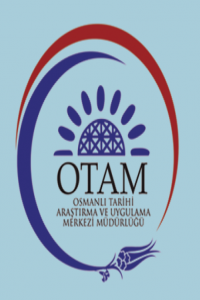Rumeli Demiryolu Projesi İmtiyazları ve Yabancı Sermaye, 1860-1936
Osmanlı Demiryolları, Rumeli Demiryolları, imtiyazlar, demiryolu imtiyazları, Şark Şimendiferleri
Economic Concessions for Ottoman Rumelia Railway Projects and Involvement of Foreign Capital, 1860-1936
___
- Prime Ministry Archives, İstanbul (BOA)
- Sadaret Defterleri, Amedi Kalemi (A.AMD.), 54/8, 08 C 1271.
- Sadaret Defterleri, Mukavelename ve Mukavelat Defterleri (A.DVN. MKL.), 1/7, 12.01.1274, 34/14, 06.12.1310, 82/24, 01.03.1309.
- Sadaret Defterleri, Nezaret ve Devair Evrakı (A.MKT.NZD.), 349/32, 12.10. 1277.
- Dahiliye Nezareti, İdare (DH. İD..), 41/16, 1326 Ra 26.
- Hariciye Nezareti, İstişare Odası, (HR.HMŞ.İŞO.), 170/10, 13, S 1304, 159/32, 05.09.1298.
- Hariciye Nezareti, İdari (HR.İD..), 2009/90, 18.11.1887.
- Hariciye Nezareti, Sofya Sefareti (HR.SFR.04..), 318/33, 31.08.1884.
- Hariciye Nezareti, Belgrad Sefareti (HR.SFS..3…), 32/20, 11.02.1298.
- İrade Dahiliye (İ.DH), 42815, 43331, 45720, 46250/1., 70440/18288.
- İradeler, Dosya Usulü İrade Tasnifi (İ.DUİT.), 68/2-1, 3, 136/18, 16.07.1287.
- İradeler, Hariciye (İ.HR..), 313/19974, 13.05.1306.
- İrade Meclis-i Mahsus (İ.MMS.), 14/578, 24.05.1275, 50/2166, 29.08.1291, 1937/1, 2711, 1859, lef 1.
- C. Morawitz, Türkiye Maliyesi, p. 305-306.
- Başkitabet Dairesi Maruzatı (Y.PRK.BŞK.), 13/61, 24 Z 1305.
- Yıldız Esas Evrakı, (Y.EE..), 18-255/271.
- Prime Ministry Archives, Ankara (BCA) 20-117-19, 18.12.1927. 152-76-32, 05.01.1937.
- İmtiyazat ve Mukavelat, Volume I, III, Matbaai Osmaniye, İstanbul, 1302-1315.
- Muahedat Mecmuası, Volume V, p. 110-141, Hakikat Matbaası, 1297-1307 (1880-1890).
- Foreign Office Papers (FO), 195/460, 1854-1856.
- Barkley, Henry C., A Ride through Asia Minor and Marmenia, John Murray, London, 1891.
- Blaisdell, D. C., Osmanlı İmparatorluğu’nda Avrupa Mali Denetimi “Duyunu Umumiye”, Dogu-Bati Yayınları, İstanbul, 1979.
- Cameron, R.E., France and the Economic Development of Europe, 1800-1914: Conquests of Peace and Seeds of War, Princeton University Press, 1961.
- Deane, Phyllis, The First Industrial Revolution, Cambridge University Press, 1979.
- Earle, Edward Mead, Turkey, The Great Powers, and The Bagdad Railway, The Macmillan Company, New York, 1924.
- Earl, Percy, Highland of Asiatic Turkey, Edward Arnold, London, 1901.
- Engin, Vahdettin, Rumeli Demiryolları, Eren Yayıncılık, İstanbul 1993.
- Feldman, G.D., Hertner, P. Finance and Modernization; A Transnational and Transcontinental Perspective for the Nineteen and Twentieth Centuries, Ashgate Publishing, 2008.
- Garnett, Lucy M., Turkey of the Ottomans, Charles Scribner’s Sons, New York, 1911.
- Grunwald, Kurt, A Study of Baron Maurice de Hirsch, Entrepreneur and Philanthropist, Israel Program for Scientific Translations, 1966.
- Handbook for Travellers in Turkey in Asia Including Constantinople, Revised Forth Edition, John Murray, London, 1878.
- Landau, Jacob M., The Hejaz Railway and the Muslim Pilgrimage, A Case of Ottoman Political Propaganda, Wayne State University Press, Detroit, 1971.
- Lewis Farley, The Resources of Turkey; Considered with Special Reference to the Profitable Investment of Capital, Longman, 1862.
- Morawitz, Charles, Türkiye Maliyesi, Maliye Bakanlığı Tetkik Kurulu Yayını, No: 1978- 188, Damga Matbaası, 1979.
- Pamuk, Şevket, Ottoman Empire and World Capitalism, 1820-1914, Cambridge University Press, 1987.
- Rodkey, F. S. “Ottoman Concern about Western Economic Penetration in the Levant, 1849-1856”, The Journal of Modern History, Vol. 30, No. 4 (Dec., 1958), pp. 348-353.
- Shaw, S. J., Shaw, E. K. History of the Ottoman Empire and Modern Turkey, Volume II, Cambridge University Press, 1977.
- ISSN: 1019-469X
- Yayın Aralığı: Yılda 2 Sayı
- Başlangıç: 1990
- Yayıncı: Ankara Üniversitesi
Osmanlı Ve Safevî Elçilerinin Venedik'te Kabul Törenleri Karşılaştırmalı Perspektifte
Osmanlı İmparatorluğu’nda Çingenelerin Sosyo-Ekonomik Yapıları
Trabzon Şer‘iyye Sicillerindeki Nikah Kayıtları 1750-1755
Birinci Dünya Savaşı'na Kadar Osmanlı Devleti'nde Demiryolu Politikaları ve İnşaatları
Zeynel ÖZLÜ, Mustafa Murat ÇAY
İskan Sürecinde Konar-Göçerler: Manisa Ve Çevresi Örneği Xvi-Xx. Yüzyillar
Rumeli Demiryolu Projesi İmtiyazları ve Yabancı Sermaye, 1860-1936
Feniks Neşriyat-I Matbua Osmanlı Anonim Şirketi’nin Nizamnamesi ve Faaliyetleri
